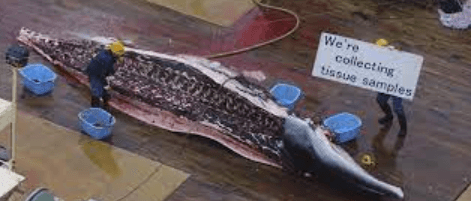
In the world of marine conservation, Whaling Definition is one of the most controversial topics. On one side, there are those who believe that whaling is an important part of global history and culture. On the other side are those who believe that whaling is cruel and unnecessary, and should be banned outright. In this article, we will explore the definition of whaling and discuss the pros and cons of this controversial industry. By the end, you will have a better understanding of whaling as a whole and whether or not you think it’s appropriate for modern society.
What is Whaling Definition?
Whaling Definition is a centuries-old commercial activity that takes place in the ocean. Whalers use harpoons to kill whales for their meat, oil, and blubber.
The history of Whaling Definition
Whaling, or the hunting of whales, dates back to prehistory. From ancient times, people hunted whales for their meat and oil. Whaling became an important part of the global economy in the 18th century. At that time, many people believed that whale oil could cure diseases. In fact, until the late 1800s whale oil was one of the world’s most popular oils. Today whaling is still an important industry, but it is mainly used for research purposes.
How does Whaling Definition work?
Whaling is the hunting of one or more large marine mammals by a fleet of ships, typically using harpoons and rifles. The animals are usually killed for their meat, but may also be killed for their blubber.
The different types of whaling
There are many different types of whaling, each with its own unique history and purpose. Here are three of the most common: commercial whaling, scientific whaling, and aboriginal subsistence whaling.
Commercial whaling is the most common form of whaling, practiced by both commercial and subsistence hunters. Commercial hunting is conducted for the purpose of obtaining whale products, such as meat, oil, bone, ivory, and spermaceti. The main participants in commercial whaling are Norway (the largest commercial operator), Japan, Iceland, and South Korea.
scientific whaling is conducted for the purposes of gathering data on whale populations in order to improve management practices or to study certain aspects of whale biology. Scientists from various countries carry out this type of research; the most prolific operators are Japan, Russia, and Norway.
Anthropogenic (human-caused) factors have had a major impact on whale populations throughout the world; therefore, aboriginal subsistence hunting remains an important component of global whale populations. Aboriginal subsistence hunters hunt whales for their meat, blubber, teeth–both manual labor requirements and tusks–and other goods used in traditional culture. These hunts can take place anywhere there are whales occurring in close proximity to humans.
Conclusion
Whaling has been around for centuries and is still practiced today in some parts of the world. Whale hunting can be controversial because it is an animal-based activity that many people think should not be done. However, whaling can be done humanely if regulations are followed. If you’re interested in learning more about whaling or want to know whether it’s something you’d support, I’ve included a few resources at the end of this article.